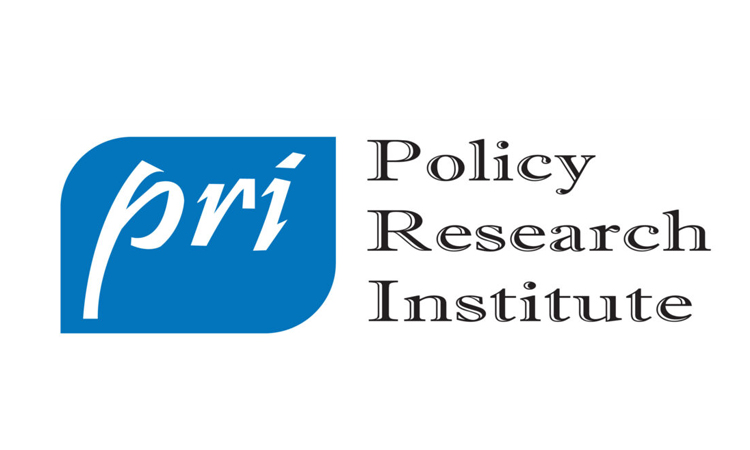News Flash

DHAKA, July 24, 2025 (BSS) - The Centre for Macroeconomic Analysis (CMEA) of
the Policy Research Institute of Bangladesh (PRI), in partnership with the
Department of Foreign Affairs and Trade (DFAT) of the Australian Government,
hosted the July edition of its Monthly Macroeconomic Insights (MMI) today at
PRI's conference room.
Dr Khurshid Alam, Executive Director of PRI, opened the session, noting that
revenue remains a key challenge and that reforms such as separating
policymaking from implementation in the NBR, are still a work in progress.
The event was chaired by Dr Zaidi Sattar, Chairman of PRI, and graced by Dr
Moyeen Khan, Former Minister for Economic Planning; Information &
Broadcasting, Science, and Information and Communication Technology of the
Government of the People's Republic of Bangladesh, as the chief guest, said a
press release.
Dr Khan emphasized, "Bangladesh's export trade heavily depends on effective
tariff policies with the United States; the country lags behind its
competitors in securing favorable agreements."
He also highlighted that building trust within the government is crucial for
achieving long-term stability.
Dr Zaidi Sattar, Chairman of PRI, and Dr Ashikur Rahman, Principal Economist
at PRI, delivered the keynote presentation.
Delivering the keynote presentation, Dr Sattar noted that, "Bangladesh's
economy is still investment-driven, not consumption-led. A slowdown in
private credit growth, reduced capital machinery imports, and lower
investment, now accounting for around 29% of GDP, are contributing to slower
GDP growth, although the macroeconomy remains stable,"
He also emphasized that Bangladesh has been exporting to the US on the basis
of comparative advantage in labor-intensive products such as RMG and
footwear.
"Given that the US is a large and expanding market, we need a favorable trade
agreement with them. Relying on labor-intensive competitive advantage is no
longer sufficient. We need a competitive trade deal because if our
competitors obtain better trade terms, our global competitiveness will be
undermined. This presents a new and pressing challenge that we have to deal
with."
Dr Ashikur Rahman underscored that the measures and policies taken to restore
good governance in the financial sector will require continuity over the next
one to three years.
He said this makes it imperative that the next elected political government
shows unfettered commitment to this broader vision of restoring discipline
and governance in the banking sector.
Australian Deputy Head of Mission to Bangladesh, Clinton Pobke, attended the
event as a special guest.
He remarked, "The MMI event serves as a bridge to understanding complex
economic issues and engaging with them effectively."
Dr Muhammad Abdul Mazid, former Chairman of the NBR, was presented as a
panelist.
He said since the fiscal space is limited, reforms, particularly in tax
policy, debt management, and GDP calculation, are essential, even if they are
painful.
"Without a clear separation between policymaking and implementation within
the NBR, meaningful progress will remain out of reach." He added.
An open floor discussion followed, offering space for vibrant audience
engagement on monetary policy, inflation management, and the digitalization
of revenue administration.
The session concluded with closing remarks by Dr Zaidi Sattar.